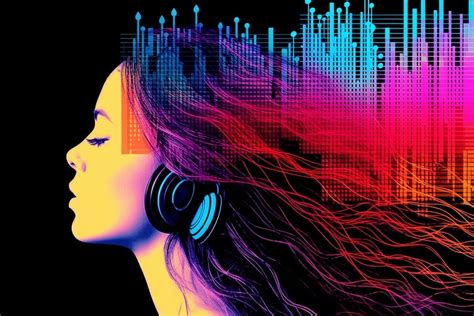AI Music Therapy: A Revolutionary Breakthrough in Future Health Management!

With the continuous advancement of science and technology, the application of artificial intelligence (AI) in the field of medical and health management has attracted increasing attention. Among them, the potential of artificial intelligence in music therapy has sparked extensive discussion at the recent 2024 Global Music Intelligent Therapy Forum. At this forum, experts from different fields gathered in Shanghai to discuss the latest developments in the intersection of music and health, revealing how artificial intelligence can change the face of music therapy.
Participants pointed out that in the future, artificial intelligence will penetrate into many aspects of life, including the combination of music and health. By analyzing the individual's physiological data and psychological state, AI can generate personalized music therapy programs. This precise digital music therapy method can not only promote physical and mental health, but also open up new application prospects in many fields such as hospitals, mental health and child development. All this shows the great potential of combining artificial intelligence technology with traditional healing methods , especially in the current aging society.
Traditional music therapy relies more on the emotional creation of musicians. Although artificial intelligence still has limitations in emotional expression, it has unique advantages in the functionality of music. Through big data analysis, artificial intelligence can identify and simulate a large number of musical expressions, helping researchers to better understand the connection between music and physiology. The scientific exploration in this process may bring breakthroughs in future music psychology research and reveal a deeper relationship between human emotions and music.
In clinical applications, the advantages of AI music therapy are more obvious. The professional talent training cycle for music therapy is long and demanding, and AI can replace some repetitive work to a certain extent. This will enable music therapists and musicians to devote more energy to more creative and valuable work. In addition, the precise analysis ability of AI can also realize the efficient implementation of digital therapy in scientific research and experiments.
At present, although there are no large-scale successful cases, exploration in the fields of mental health and chronic disease management has gradually attracted attention. Specifically, the US FDA has approved a variety of digital medical products, and China is also actively promoting similar innovations. In the future, with the development of artificial intelligence technology, individuals may have their own "digital twins", which can not only monitor personal health data in real time, but also provide personalized music therapy solutions. Such 24-hour uninterrupted care will greatly improve the timeliness and personalization of traditional care.
Looking ahead, it is believed that artificial intelligence will play an even more important role in the field of music therapy . Combining art and technology, artificial intelligence will become a great helper in human emotional regulation and health management. The popularization of this technology will not only improve the quality of life, but also allow true artists and therapists to focus on deeper creation and treatment. In this sense, the popularization of artificial intelligence is undoubtedly a revolutionary breakthrough in health management. Therefore, professionals in the fields of medicine, music and artificial intelligence will be able to find new opportunities for cooperation and promote the development of related fields in this increasingly integrated era.
The future of music therapy will undoubtedly usher in new development opportunities as artificial intelligence technology continues to mature. Through the deep integration of technology and art, we expect that we can create more solutions to improve the quality of human life.